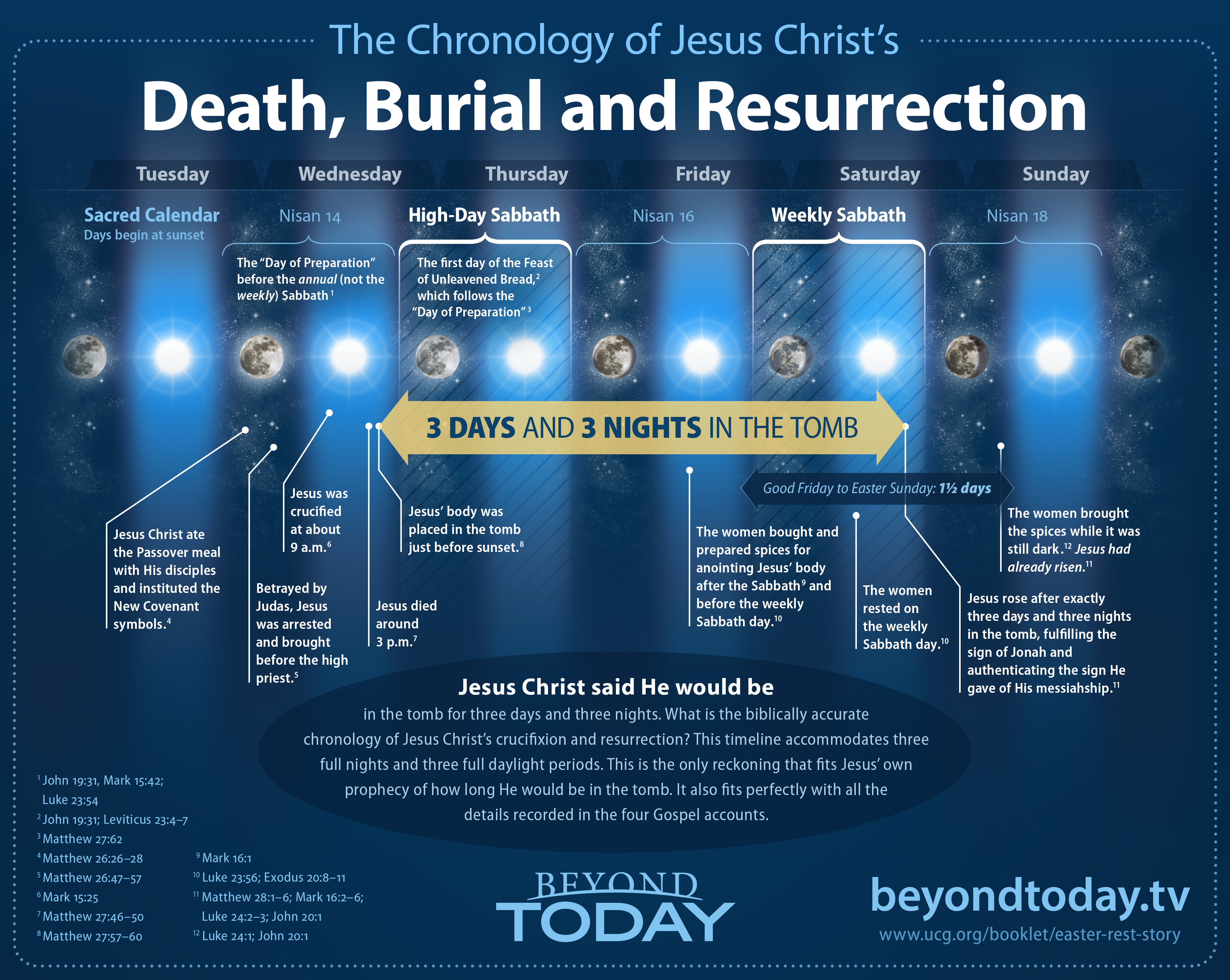The expression 'first day of the week' is found in the following verses;
Matt 28:1; Mark 16:2,9; Luke 24:1; John 20:1,19; Acts 20:7; 1Cor 16:2.
Of these references, those found in the four gospels refer specifically to
the day Christ rose from the dead. Acts 20:7 refers to a day Paul taught at
Troas and 1Cor 16:2 refers to when a provision for the saints in Jerusalem
was to be set aside.
The proper translation of the Greek is 'first of the sabbaths'. This text could in effect be translated in a number of ways without totally destroying its meaning;
'first of the weeks'
or 'first of day of the sabbaths'
or 'first of day of the weeks'.
What does destroy the meaning is the rendering of the word 'sabbaths' in the singular form as either 'Sabbath' or 'week'. This is because the Old Testament describes a specific period of the year as the time of the 'sabbaths' or 'weeks'.
NB: All the above 'first day of the week' verses reflect the same Greek text, except for Mark 16:9 reads 'foremost sabbath'. This might at first lead one to believe that Christ rose on a Sabbath day. However, as can be seen from Luke 18:12, the word 'sabbath' is sometimes used in the New Testament to refer to a 'week'. Rendering the Greek as 'foremost week', suggests the first of several weeks as in First Fruits with is a sabbath starting point for the seven weeks before Pentecost which is also called a Sabbath, a feast of weeks sabbaths.
Matt 28:1; Mark 16:2,9; Luke 24:1; John 20:1,19; Acts 20:7; 1Cor 16:2.
Of these references, those found in the four gospels refer specifically to
the day Christ rose from the dead. Acts 20:7 refers to a day Paul taught at
Troas and 1Cor 16:2 refers to when a provision for the saints in Jerusalem
was to be set aside.
The proper translation of the Greek is 'first of the sabbaths'. This text could in effect be translated in a number of ways without totally destroying its meaning;
'first of the weeks'
or 'first of day of the sabbaths'
or 'first of day of the weeks'.
What does destroy the meaning is the rendering of the word 'sabbaths' in the singular form as either 'Sabbath' or 'week'. This is because the Old Testament describes a specific period of the year as the time of the 'sabbaths' or 'weeks'.
NB: All the above 'first day of the week' verses reflect the same Greek text, except for Mark 16:9 reads 'foremost sabbath'. This might at first lead one to believe that Christ rose on a Sabbath day. However, as can be seen from Luke 18:12, the word 'sabbath' is sometimes used in the New Testament to refer to a 'week'. Rendering the Greek as 'foremost week', suggests the first of several weeks as in First Fruits with is a sabbath starting point for the seven weeks before Pentecost which is also called a Sabbath, a feast of weeks sabbaths.

